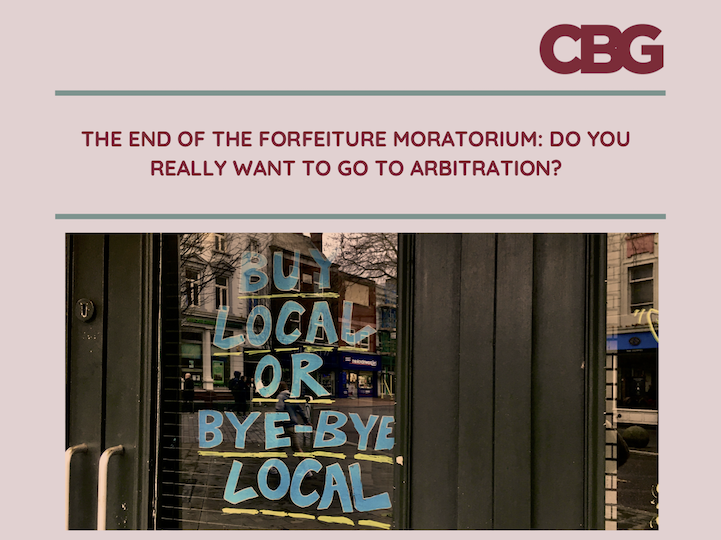At the start of the Coronavirus pandemic, the Government stopped landlords from evicting tenants from commercial premises due to non-payment of rent in order to protect businesses that were forced to close. These arrangements were only expected to last for three months but are now due to expire on 25 March 2022.
The Government has just issued further guidance on the proposed binding arbitration system ahead of draft legislation being presented to Parliament.
Background:
-Landlords are unable to evict any commercial tenant for non-payment of rent, or sums reserved as rent under their lease, before 25 March 2022 (or sooner if legislation is passed); -It’s estimated that as of 24 June 2021 there was some £7.5 billion of commercial rent due to landlords;
The proposal:
-The Government is going to ringfence rent arrears which accrued during the pandemic for “businesses affected by COVID-19 business closures until restrictions for their sector are removed”;
-It’s clear that tenants who have not been forced to close, or those who have the means to pay, should pay their rent in accordance with the terms of their lease. It appears that these tenants will not be covered by the proposed legislation.
-Furthermore, elective closures (i.e. where businesses decided to remain closed as it was cheaper than opening up with little to no custom) will also fall outside of the proposed legislation;
-Landlords will be able to evict tenants for non-payment of rent arrears that have not been ringfenced;
-Communication and negotiation between the parties is being encouraged. The guidance expects landlords to share some of the burden in relation to the ringfenced arrears with references being made to these being “deferred or waived”.
-The cost of the arbitration is expected to be shared between the parties, however, arbitrators will have discretion as to costs where one party is found not to have negotiated in the spirit of the legislative principles;
Conclusion:
The latest guidance goes some way to setting out how two years’ worth of arrears will be dealt with, but there are still a number of unknowns. The upshot of arrears being deferred, as opposed to waived, is that many businesses will be considered unviable; whilst waiving arrears could cause issues for landlords and their lenders.
Ultimately the parties will have little control over the outcome of the arbitration, whilst having to abide by the ruling. Landlords and tenants would therefore do well to turn their efforts to engaging in constructive negotiations over the next 5 months in order to reach an agreement which works for both parties.
If you would like to discuss how to approach rent arrears negotiations or are looking to document arrangements following an agreement then please contact Alex Hutchings or Mark Brassey to discuss how CBG Law can assist.
Please feel free to get in touch with Alex Hutchings or Mark Brassey to discuss how they might be able to assist you and your business.
T: 020 7462 6961
M: 07825 563 785
E: ah@cbglaw.co.uk


